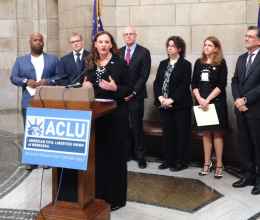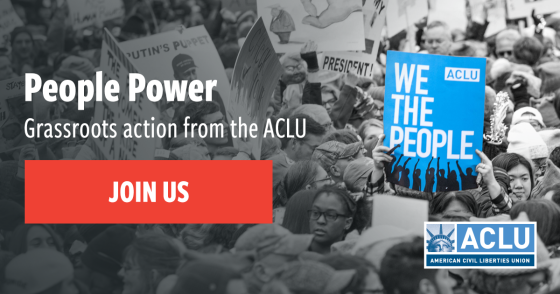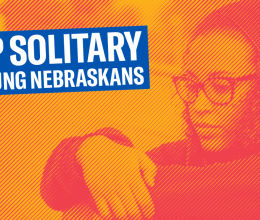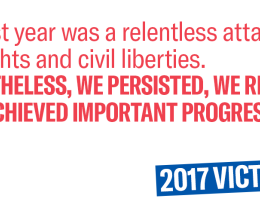
In 2016, Sen. Patty Pansing Brooks introduced and passed reporting requirements for juvenile facilities in Nebraska. Lisa Casullo shared her story in Growing Up Locked Down, the ACLU's investigation into the practice, and shared her story in the Nebraska Legislature. As a new bill aims to increase accountability for juvenile facilities, Lisa, who now has a doctorate in psychology, has shared more of her experience.
I was thirteen years old when I experienced my first out of home placement which was at an inpatient psychiatric facility. I was thirteen years of age the first time I was put into solitary confinement. Solitary confinement at that time was administered in one hour blocks of time. The first time I was put in this cold, empty room was for eight hours. I screamed, cried, begged and eventually grew quiet after there was no response from anyone on the other side of the steel door. I vividly remember sitting hunched in the dark corner of the small room feeling terrified and hopeless. I spent those hours finding new ways to punish myself for being the bad person I knew I was. It was in the early morning hours that I fell asleep with dried blood across my arms and legs, curled up in a ball on the cement floor.
I was locked in a small room for hours because I did not turn off my light at 9:00pm. I had a paralyzing fear of the dark because of my extensive history of being harmed in the dark. After sharing this fear and asking for the door to be cracked, I was told simply I needed to turn off the light then or I would have a consequence. Many of the behaviors that resulted in me being put into solitary confinement were behaviors I had developed to survive an unsafe and unpredictable environment.
Over time I was put in solitary confinement for admitting to thinking about suicide or self-harm, for refusing to talk in group, not completing my journaling or any time I attempted to harm myself in any way. The more I was forced to be alone and separated from the rest of the world the more I withdrew and hurt myself. I was in this facility because of a suicide attempt and because I was hurting myself. I then came to this place where they continued to want to have that control over me at all times and if I tried to rely on ways I had coped in the past I was punished for doing this.
Sadly, testimony regarding use of solitary confinement in Nebraska facilities last year indicated that solitary confinement is still being used in some facilities as a punitive measure rather than as a safety measure to be utilized only in extreme circumstances.
When isolation is used as a way to manage behavior everyone loses. The person is taught that they are not in control of their own body or their behavior. The person is taught they are powerless and that what they think or feel does not matter. More than twenty years later there are still youth experiencing this same thing.
The Nebraska Legislature took an important step last year by starting to hold juvenile facilities accountable for their use of solitary confinement. The youth of Nebraska are important enough to the future of our state that I hope the Legislature's work in addressing juvenile solitary confinement is just beginning.
Read more stories of Nebraskans who spent time in solitary confinment when they were kids and sign our petition to take action.



